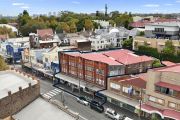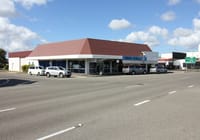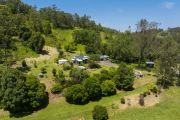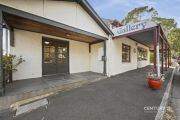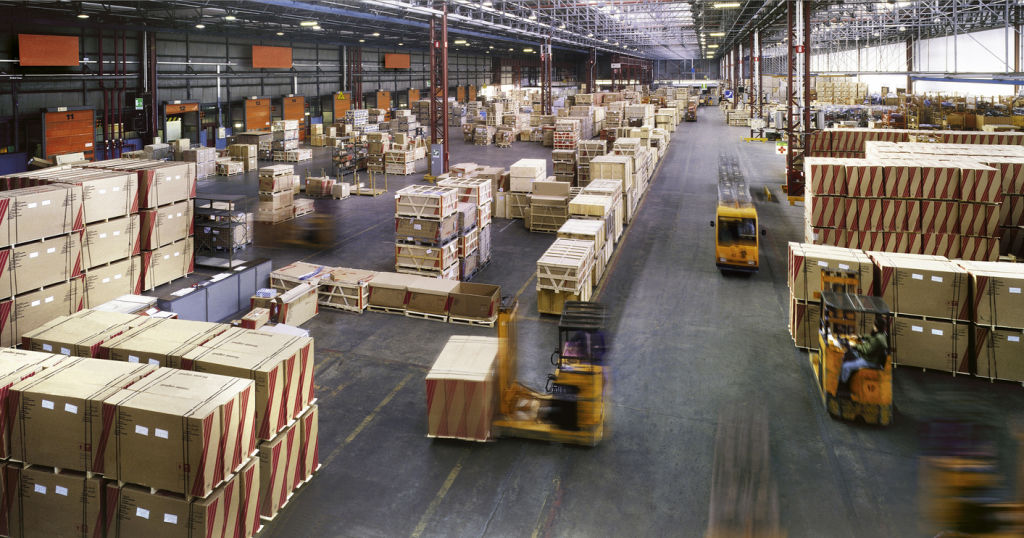
Melbourne warehouses remain in demand despite harsh lockdown
Melbourne’s industrial market appears to have escaped the worst of the city’s harsh lockdown, with a rise in e-commerce activity having kept demand for assets such as warehouses strong during the pandemic.
“While Melbourne’s industrial property market initially entered a shock period at the start of COVID-19, the market has since built momentum and is performing quite well,” said Nathan Bingham, chief customer officer at TM Insight.
“In the first half of the year, COVID-19 slowed down industrial leasing activity, due to mass uncertainty. However, demand has ramped back up, driven by the e-commerce, grocery, FMCG and transport and logistics sectors who have experienced significant growth over the COVID-19 period,” he said.
The sector had largely benefitted from a combination of continued interest from large-scale investors and new interest from investors who were avoiding other real estate sectors.
“Investment yields continue to remain at a record low as investors turn to industrial assets from other asset classes. While the buyer pool has tightened, with COVID-19 likely to have knocked out some second and third-tier investors, key institutional players remain bullish about the prospects of industrial assets,” Mr Bingham said.
He said it was important to remember that this recession was unlike that of 2008, with well-positioned investors able to continue taking advantage of record-low interest rates.
“Fortunately, the pandemic is not like the GFC which caused a severe liquidity crisis, meaning there is still plenty of capital available at historically low interest rates. This has meant that new industrial developments have continued and developers continue to look to acquire new land parcels,” he said.
Net rents stable
Prospects for the market are positive heading into the tail end of 2020, according to Cushman & Wakefield’s Q3 Industrial Market Beats report, although much of this depends on how extensively lockdown restrictions are eased in the coming weeks.
“Despite enduring the nation’s harshest lockdown measures, the Melbourne industrial market has delivered promising signs for the remainder of 2020 and into 2021,” said the report, released this week.
It said leasing activity was down during the lockdown period but “not as far as one may expect”.
Year-on-year net face rental growth has been stable in all precincts and all size ranges, according to the report, with the exception of the city’s west, where 8000-square-metre-plus lots have seen a 7 per cent increase in face rents, moving from between $70 and $80 per square metre to be $75 to $85 per square metre.
However, incentives did increase for 5000-square-metre-plus lots in the north and south-east regions, up 50 per cent and 22 per cent respectively. Incentives also increased by 20 per cent for sub-5000-square-metre lots in the north.
The report also found that transaction volumes for industrial properties bounced back during the third quarter.
Some $486 million worth of transactions occurred during the three months to the end of September, up from the five-year average of $430 million. Five of these sales were in excess of $50 million.
The result was an improvement on quarter two, which saw $178 million worth of transactions, down from the five-year average of $215 million.
Demand for smaller facilities
Demand doesn’t appear to be isolated to major projects either, with developer Riverlee reporting strong interest in its Belrose industrial project in the Melbourne suburb of Cheltenham.
The developer reported that 50 per cent of its first-stage release of office warehouses and showrooms in the Belrose South section of the development sold within a two-week window prior to the project’s official launch.
The project was originally set for an October launch but Riverlee had “opted to test the market” with the off-market release according to an update from the company.
“Due to COVID-19, we reassessed our sales and marketing campaign and decided to spend some time off-market, liaising directly with our database,” said David Lee, Riverlee’s development director.
“We were pleasantly surprised with the response. Within just a few weeks, we sold 50 per cent of our first stage, which demonstrates the resilience of the industrial sector throughout this time, despite the impacts of COVID-19, and showcases the demand for well-located, appropriately sized and priced product that is close to where people live and work.”
Prices in the south stage begin at $550,000. The precinct will offer 24 office warehouse and showroom spaces ranging in size from 141 square metres to 281 square metres.
The yet-to-be-released Belrose North section of the project will see an existing 1950s factory converted into 32 workspaces.
The project is being marketed by Nichols Crowder and Knight Frank.
Julian Vautin, senior sales and leasing executive at Nichols Crowder, said many businesses were still willing to acquire property in line with their long-term business plans during the pandemic, with the firm’s Moorabbin office having transacted 90 commercial property deals between April and August.
“The local market resilience has been very strong and impressive,” said Mr Vautin.
“The transactions recorded at our Moorabbin office are a testament to small business resilience and their ability to make medium to long-term decisions on their business direction in the face of a global pandemic.”
